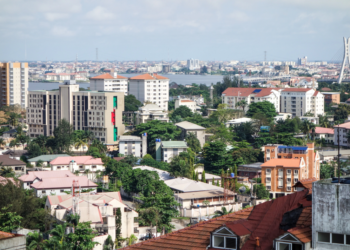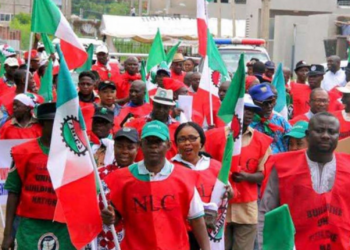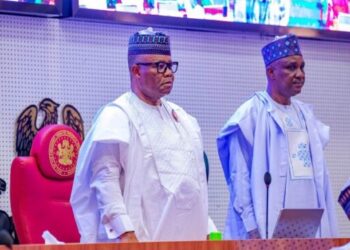Rivers State outranked others in the overall 2021 Fiscal Performance Ranking report, recently published by BudgIT, titled “State of States report.”. The oil-producing state maintained the top spot ahead of other economic centres such as Lagos, Abuja, Kano, and Oyo States.
According to the report, the state recorded the highest score of 140 points having considered their operating expenses, internally generated revenue, debt profile, and total revenues. The report revealed that the fiscal fundamentals of the state are more prudent compared to other states in the country, despite the downturn in its IGR caused by the covid-19 pandemic.
The report highlighted that Rivers State was one of the few states that prioritised capital expenditure in 2020 as opposed to operating expenses. Its capital expenditure accounted for 59.7% of the total spending in 2020, compared to operating expenses of 40.3%.
Notably, the state spent a sum of N168.36 billion on capital expenses, N113.65 billion on operating expenses with a total revenue of N270.38 billion. Its IGR dipped by 16.53% year-on-year in 2019, gross federal allocation also declined by 11.46% while capital expenditure dipped by 24.14% in the same period.
Highlights of the report
- Rivers State’s total debt profile stood at N303.68 billion as of 31st December 2021, representing the second most indebted state behind Lagos State. Its debt composition was N266.94 billion domestic debt and $96.7 million foreign debt as of the reference period
- Of the state’s N168.4 billion capital expenditure, the economic sector received the highest priority with N85.28 billion, followed by ‘Special Heads’ which received N31.46 billion.
- The Social Sector, Administrative Sector and Law/Justice sector received N23.94 billion, N20.46 billion and N7.21 billion respectively.
- Rivers State also had the 3rd highest per capita spending on capital expenditure of N20,120 exceeded only by Ebonyi and Lagos States with a per capita spending of N23,608 and N21,895, respectively.
Preliminary evaluations indicate that the Ministry of Education and Ministry of Health received N2.8 billion and N1.5 billion, respectively for capital expenditure, while the Rivers State Government House received N27.7 billion for capital expenditures through ‘Security Vote’ envelope in addition to another N16.1 billion received through the main Government House capital expenditures envelope.
Furthermore, the social sector received only N20.46 billion, a significant 63.07% decline from N64.84 billion spent in 2019. Citizens and civil society are encouraged to ensure that expenditures received by the different state government agencies as reported in the state’s audit report are translating to value for money and tangible projects on the ground.
“The state will need to work hard in further boosting its IGR especially as headwinds from the COVID-19 pandemic significantly affected federally distributed revenue, causing the state’s Gross FAAC allocated to decline by 11.46%, from N169.13 billion in 2019 to N149.7 billion in 2020.”
Although crude oil prices are recovering, the global push for energy transition from fossil fuels like crude oil to clean energy, means the days of relatively easy oil revenue are numbered. Rivers state’s capital expenditure declined by 24.14% from N221.9 billion in 2019 to N168.4 billion in 2020.
The report recommended a job creation target of 409,730 per year for the next four years in Rivers State, as this is believed to help boost the states output growth. “Rivers State needs to leverage its comparative advantage to boost economic prosperity and job creation to turn this situation around,” the report partly reads.
Outlook for the state
According to the report, the following recommendations were made for Rivers State in the short and long term.
- The state needs to update its economic prosperity blueprint and build it around incentivizing the private sector to harness its export potential in manufacturing and agro-processing, especially as it plays host to two large seaports in the country, which are Rivers Port Complex and Onne Ports Complex.
- The state has to implement policies that adequately incentivise the formation of private sector clusters focused on the refining of Palm Oil which had a global market of $42.8 billion as at 2020 that is expected to grow to $57.2 billion by 2026.
- Palm Oil today sells for $106.53/barrel making it more expensive than a barrel of crude oil which costs $75.34/barrel.
- A 5-year strategy that can assist Rivers State produce and refine up to 200,000 barrels of palm oil per day would go a long way in improving the state’s economy, creating jobs and boosting the state government’s finances and resilience in the event of future shocks.
Methodology of the report
The report considered four indices in measuring the performance of the states, index A with a weight of 45%, measured operating expenses as a ratio of IGR and VAT, index B with a weight of 35%, measuring the ratio between operating expenses, loan repayments as against total revenue. Index C, with an applied weight of 10% measured their debt profiles as a ratio of total revenue, while index D with a weight of 10% evaluates the degree to which each state prioritizes capital expenditure with respect to their operating expenses.




















